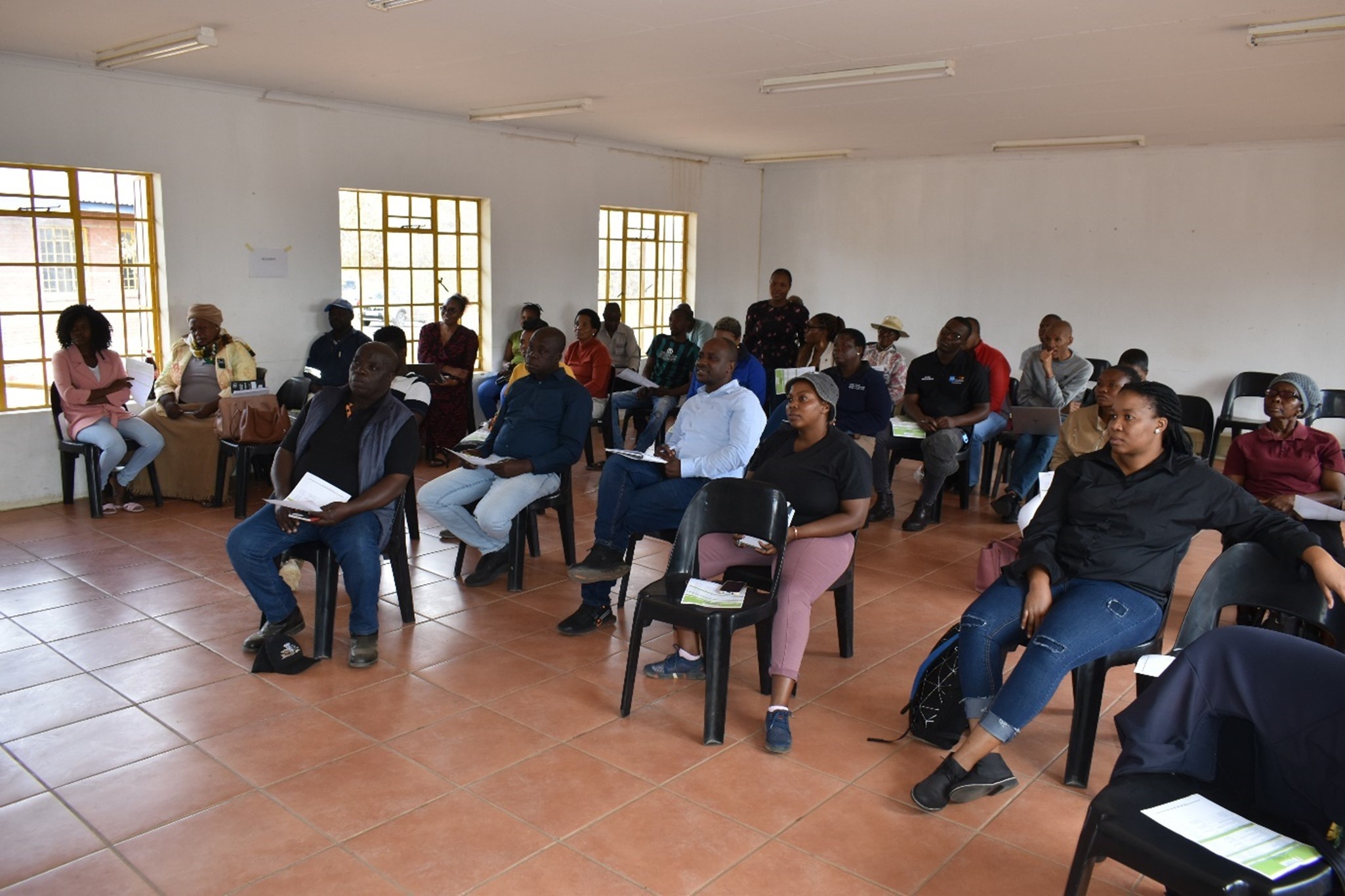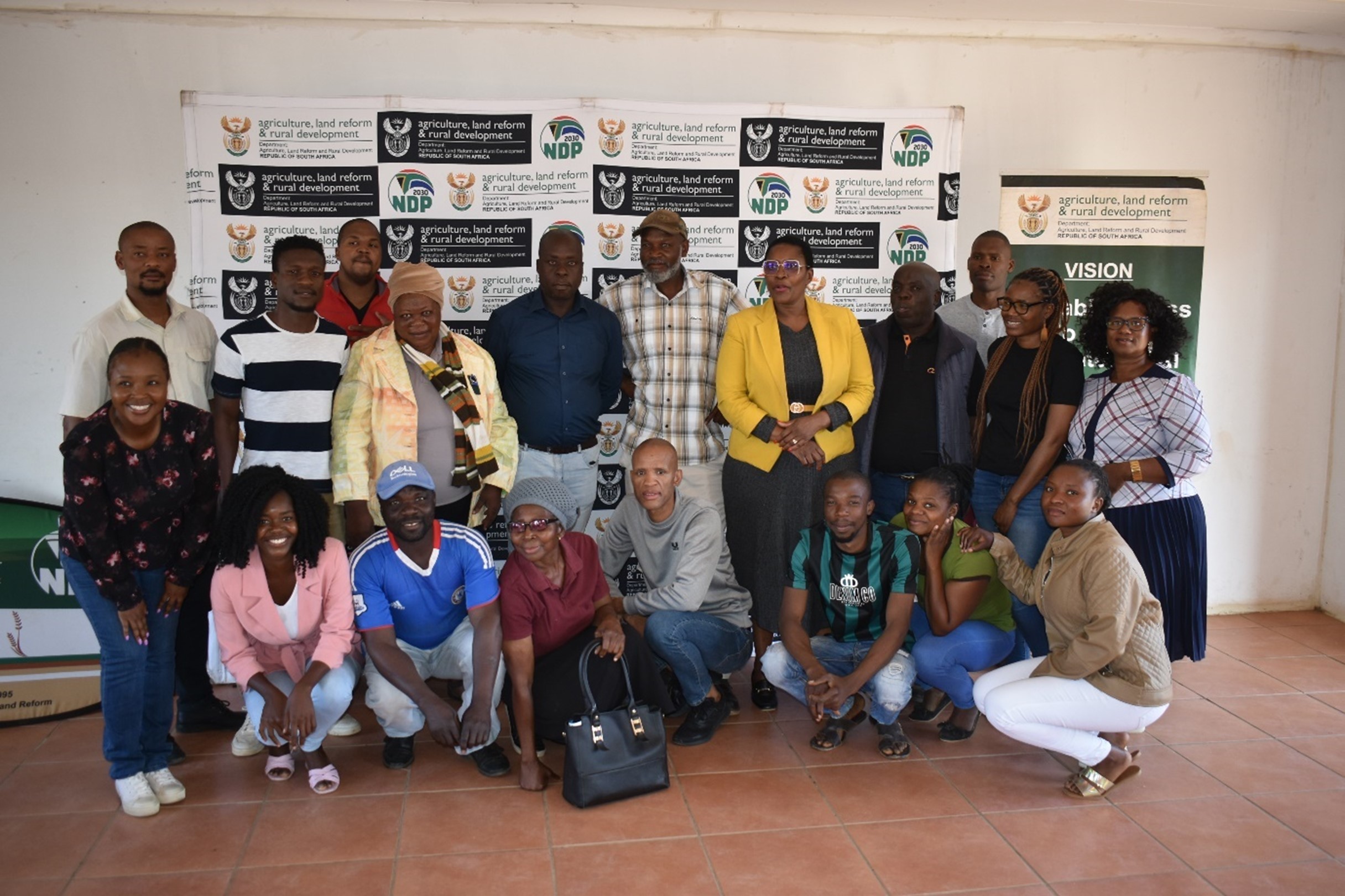By Justice Maluleke

DALRRD supported these farmers through mechanisation, production inputs and non-financial interventions such as training and market access awareness.
Farmers from Gravelotte Selwane and Prieska (GRASP) at Masalal FPSU in Seolwana Village, Mopani District, were urged to refrain from the old ways or regular practice of grow and sell, but rather grow to sell.
They were advised while attending the information day on marketing, which was organized by the Department of Agriculture, Land Reform and Rural Development (DALRRD) through its Cooperative Enterprise Development (CED) Directorate on 14 September 2023.
Farmers were encouraged to do proper research before commencing with their farming activities. They must conduct research on the type of soil to plant on, understand the importance of crop production planning, the type of product to produce, identifying the need and demand of the product in the market they are targeting (understanding market requirements) and understand of off-season production.
Understanding all those requirements could make it simple for GRASP famers, who are currently producing a wide variety of crops including cabbage, spinach, okra, tomatoes, green paper, butternut, citrus and mango, to have their produce easily land in big retail shelves.
Growing to sell than grow and sell concept is in line with Smallholder Horticulture Empowerment and Promotion (SHEP) model – a programme initiated by Japan International Cooperation Agency (JICA) that encourages farmers to undertake marketing research of what they intend to produce before commencing with their farming operations.
SHEP model ensures that smallholder farmers are market oriented. However, the services of extension officers, which represent the bridge between government and farming community, should link with marketing entities such as National Marketing Council and Research Institutions in collaboration with farmers and agri-businesses to understand the needs of the market at local level before any production activity takes place. SHEP focuses on sensitisation and baseline survey, market survey, in-field training and end line survey.
Since the formation, GRASP have benefited from DALRRD through the support with mechanization, production inputs and non-financial interventions such as trainings and market access awareness campaigns thus contributing to the department’s mandate of improving agricultural production to stimulate economic development and food security.
Established in 2015, GRASP is a group of black owned cooperatives residing in the Ba-Phalaborwa Local Municipality that have combined to form a secondary cooperative. They coordinate their own sales locally and are controlled by the ever-changing market price when they take their products to different markets. Apart from trading their products locally, GRASP also markets with Tshwane market, Johannesburg market and local retail stores.



